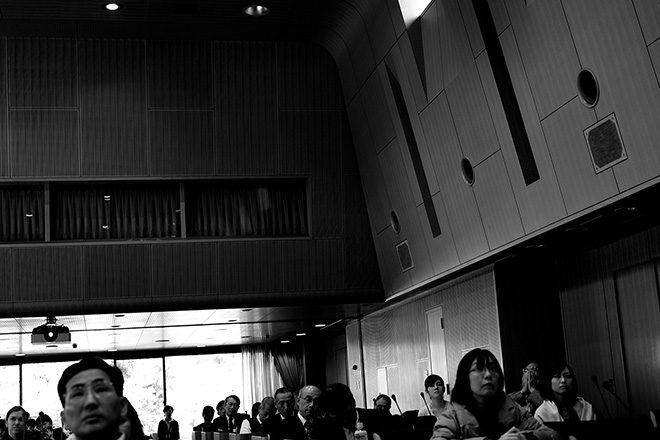Understanding the unfathomable nature of human society and moving toward becoming scientists with depth
Shuichi Sakai / Graduate School of Information Science and Technology, University of Tokyo
Q: When considering the safety of IT society and cyber security, I think that “malicious intent” frequently comes into view. Isn’t it a fairly difficult problem to deal with this “malicious intent”?
Sakai: There is a variety of levels of ill will. For example, the conflict between the Islamic State and America or those involving terrorists is a battle that has a huge stake rather than malicious intent. However, there is also a bit more humanistic malicious intent that casually finds its way into people’s hearts. I like mentioning the villains from Dostoevsky’s works as examples. We understand characters like Ivan Karamazov and Nikolai Stavrogin, who have profound malicious intent that is all too human. We even occasionally sympathize with them. I think it is necessary to pursue academic learning while being aware of the existence of such intent in ourselves, and enter the real world. Scholars of scientific fields don’t often talk about these types of things.

Q: As a scientist and poet, it is fitting for you to learn about human beings’ malicious intent from Dostoevsky’s works, right?
Sakai: I think that human beings are full of self-contradictions. People think that they want to work really hard and contribute to the public good, but people also think about avoiding people they don’t care for by using fairly unjust means. People think about many things. However, although they think about them, they create situations in which they don’t actually put their thoughts to action. If we don’t understand these types of human depths and this type of human wavering as the darkness of the heart, I don’t think we can create a safe and secure society in the true sense. Personally, I don’t think that people who haven’t read even one of Shakespeare or Dostoevsky’s works can really talk about life. This is really the case (laugh).
Q: When considering cyber security and resilience, a wide variety of knowledge is required beyond just IT, such as international politics, ergonomics, and psychology, but what type of human resource development do you think is required?
Sakai: I don’t think it needs to be forced upon people, but I think that henceforth it will become more and more necessary to simultaneously think about the unfathomable nature of human society and fundamental technologies. However, there are people who are suited to this and those who are not. Therefore, I think it is an important mission of GSDM to train capable people who can do both of these things. They can contribute to society in a just and reliable manner, achieve balance as a human being, and design future societies. I want all of the students to become capable people who can truly contribute to society. I think that information and resilience are suitable fields for this.

Q: What types of students do you want to study in this “leading program”? Also, what do you want from the students and how would you like to see them grow?
Sakai: Human depth. I want the people who participate in programs like GSDM’s to be multifaceted. I think it is better to have some depth while having certain types of constructive and deductive thoughts. I don’t think people will enjoy the program in the end unless they have some human depth. So, it would be advisable for them to be able to think broadly.
